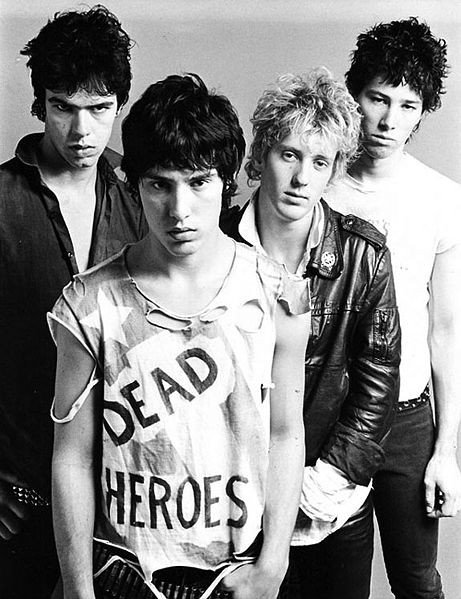Woozy "Not a Band" After Sexual Assault Allegations

Members of the New Orleans indie rock band deal the fall out from accounts of sexual assault by Woozy's John St. Cyr.
Late yesterday, Kara Stafford and Ian Paine-Jesam announced that “Woozy is no longer a band.” The joint statement on Facebook follows the revelation by Katryn Macko of Tallahassee band Naps that detailed Woozy member John St. Cyr sexually assaulting her. Woozy’s Blistered was a deserving nominee for the My Spilt Milk Awards’ Debut Album of the Year, but in light of Macko’s statement, Exploding in Sound and New Orleans indie collective Community Records—the labels that released the album—have withdrawn support for the band. Community Records wrote:
We are deeply saddened and upset to hear of the actions of John St. Cyr of Woozy. This is new information to us (and Kara and Ian of Woozy) and we absolutely can not support or condone that type of action.
In order to stand with the sexual assault survivor Katryn, we as a label are withdrawing our support of Woozy. We want to thank Katryn for her bravery in taking action to shine light on her experience.
Macko’s post concludes with her memory of being told that there are many stories like hers that follow St. Cyr, and according to Stafford and Paine-Jesam’s post, “he acknowledges what he's done.”
Effective immediately, John is engaging in complete sobriety. If he can't check his privilege when he's drunk, he doesn't get to drink. If he forgets the innate power dynamics of our society when he's drunk, he doesn't get to drink. If boundaries are blurred when he's drunk, he doesn't get to drink. He is currently looking locally for a therapist. We are brainstorming other ideas for him to make sure that what he's done NEVER happens again, to any other person he interacts with.
For the moment, St. Cyr isn’t speaking publicly, but Stafford and Paine-Jesam’s pain is clear in their statement.
This band will not tour again. When we got the text this morning about the victim's (will not say her name here out of respect for her right to have nothing to do with us) facebook post, we were in shock. We were in denial. We were completely thrown from the world that we know. The two of us are sincerely sorry if we hurt anyone by appearing to deny her her truth. This was not our intention, though we know that is a weak excuse. It is everyone's responsibility to stand with victims of sexual violence, even those whose loved ones commit such evils. Especially the loved ones. We are the ones who must hold John and ourselves accountable for what has happened, and we fully intend to.
These events follow two relatively high profile incidents that expose the complicated relationship between alcohol and sexual assault. Earlier this year, long-time music industry publicist Heathcliff Berru's pattern of sexually abusive behavior came to light, and more recently, Stanford swimmer Brock Turner was convicted of rape, and both men attributed their actions to alcohol. “I do not want to be the type of person who would let drugs or alcohol take command of his life and compromise how he treats people,” Berru said in a statement. “Yet I have been this person and it’s time to put a stop to all of this.”
In his written explanation, Turner wrote, “I made a mistake, I drank too much, and my decisions hurt someone.”
As many critics have observed though, the focus on drinking implies wrongly that it’s the cause and therefore the thing that must be stopped. "The behavior that Heathcliff apologized for is not ‘offensive’,” publicist Beth Martinez wrote. “Trying to place your penis in a woman's mouth or vagina while she says ‘no’ repeatedly is rape.”
In her powerful letter, the woman raped by Turner wrote, “If you want talk to people about drinking go to an AA meeting. You realize, having a drinking problem is different than drinking and then forcefully trying to have sex with someone? Show men how to respect women, not how to drink less.”






